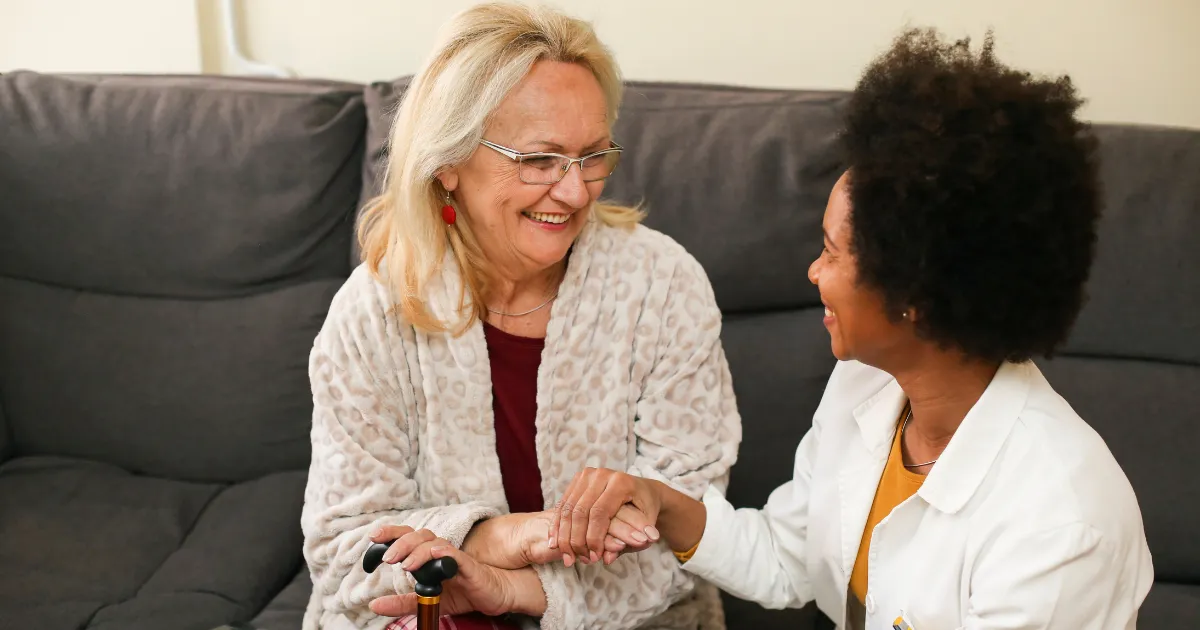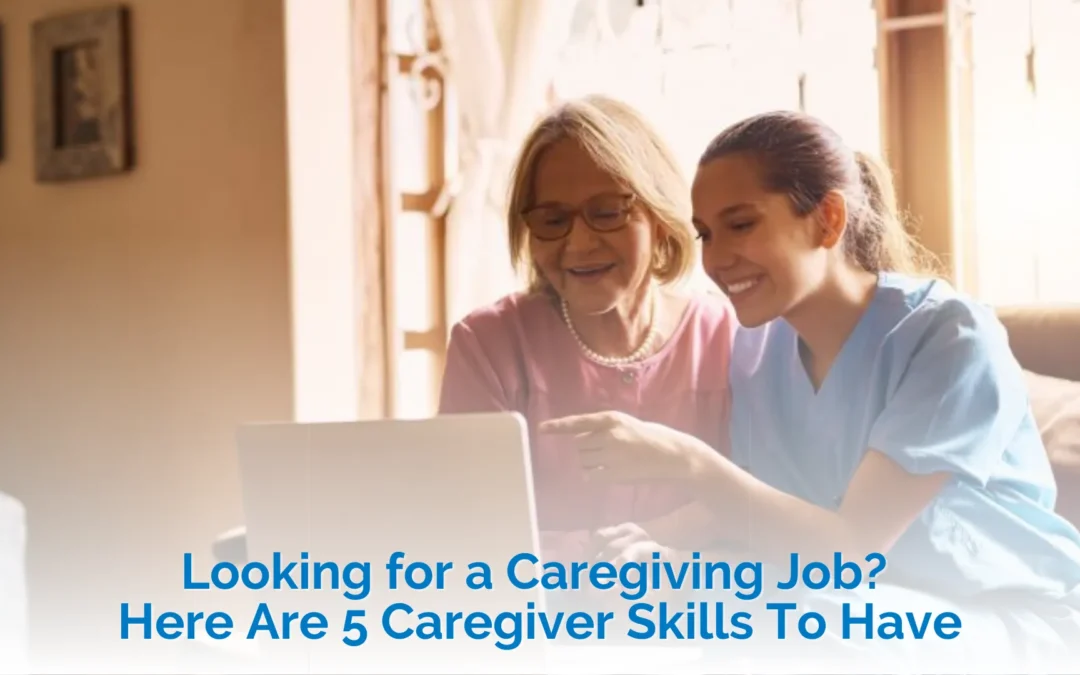If you’re reading this article, you’re curious about how to become a caregiver. Whether you’re considering a career change or just exploring your options, the world of caregiving is full of opportunities to make a real difference in people’s lives. However, there are a few essential caregiver skills you need to know about before you jump in. From being compassionate to having great communication skills, these are the most crucial things for caregiving.
In this article, we’ll discuss five essential caregiver skills to have, that will help you shine and deliver top-notch care to your clients.
Essential Caregiver Skills To Have
Let’s be honest—caregiving is no walk in the park. It demands a diverse range of skills to ensure your clients receive comprehensive and personalized care. Certain caregiver skills are critical in this line of work, enabling you to make a real difference in the lives of those you serve.
1. Compassion and Empathy
 Compassion and empathy are the beating heart of the caregiving profession. It is crucial to be able to genuinely understand and relate to your client’s emotional and physical needs. Empathy lets you put yourself in someone else’s shoes, fostering a deeper connection and trust.
Compassion and empathy are the beating heart of the caregiving profession. It is crucial to be able to genuinely understand and relate to your client’s emotional and physical needs. Empathy lets you put yourself in someone else’s shoes, fostering a deeper connection and trust.
With compassion, you can provide care with kindness, patience, and a sincere desire to improve your client’s quality of life. These two approaches not only enhance the care experience but also contribute to their overall well-being and satisfaction in a big way.
2. Communication Skills
One of the most valuable caregiver skills is great communication abilities. You’ll need to communicate clearly and respectfully—both verbally and in writing—with clients, their families, and any medical professionals involved. This means speaking slowly, using simple language instead of complex jargon, and adjusting your volume if needed, especially when caring for seniors with decreased hearing. Writing things down when necessary can also prevent important information from being forgotten.
Top-notch communication is a caregiver skill that comes in handy, especially when managing expectations and handling emergencies. Clear communication through active listening and conveying accurate information to clients, families, and medical staff prevents misunderstandings and sets proper expectations. In emergencies, this skill also allows you to remain calm and communicate efficiently to ensure the best possible response for your beloved client.
3. Observation Skills
Sharp observation skills are a must in the world of caregiving. It’s like being a detective, but instead of solving mysteries, you’re closely monitoring your client’s well-being. From subtle changes in their vital signs to shifts in behavior, every little detail matters when giving them the best care possible.
When you pay attention to your clients, you can sense trouble before it escalates. By catching warning signs early, timely interventions can be given to keep things on track. Whether beefing up safety measures or alerting your client’s family, staying one step ahead can significantly impact their health and happiness. After all, picking up on those subtle cues sets great caregivers apart – it’s all about being there for your clients, no matter what.
4. Time Management and Organization
As a caregiver, you’ll often find yourself in tricky situations where you must juggle multiple tasks and responsibilities simultaneously. Excellent time management and organization caregiver skills are essential to guarantee that every client receives the care and attention they need without compromising quality.
Being able to prioritize and stay on top of different schedules, appointments, and to-do lists is key. Besides, you may also need to multitask things like preparing meals and assisting with personal care – all while keeping meticulous notes and records.
5. Physical Strength and Stamina

Let’s face it, caregiving can be physically demanding. That’s why having a certain level of strength and stamina is crucial. You’ll need to be able to assist with various types of in-home care, such as bed/wheelchair transfers and personal care tasks while ensuring client safety and comfort at all times.
These tasks may involve lifting, positioning, or transferring clients from beds to wheelchairs and other supportive equipment. Good physical conditioning allows you to perform these tasks properly without risking injury to yourself or the client. Hence, maintaining your strength through exercise and healthy habits is super important.
Applying for Caregiving Jobs at Sunny Days Carolinas
So, are you looking for a caregiving job? Sunny Days In-Home Care Carolina could be your ideal destination. Our selection process will check your background, references, training, and HIPAA medical privacy compliance knowledge. Besides the most essential things of all, we will make sure that, as a part of our team, you possess the requisite caregiver skills and are committed to making a meaningful difference in the lives of others.
End Note
Caregiving is a rewarding profession that requires a unique combination of skills, compassion, and dedication. By developing and working on the caregiver skills we’ve covered, you’ll be well on your way to making a meaningful difference in the lives of those in need of care and support.
If you’ve got a heart for caregiving and the skills to match, Sunny Days In-Home Care Carolinas is where you belong. We’re all about creating a supportive environment where caregivers can thrive and make a real difference in the lives of those we serve. So, what are you waiting for? Join us on this fulfilling journey of caregiving excellence. Together, we can touch lives and spread kindness to one another.


